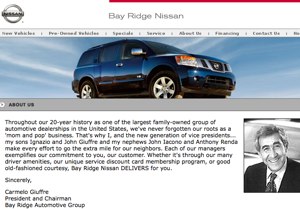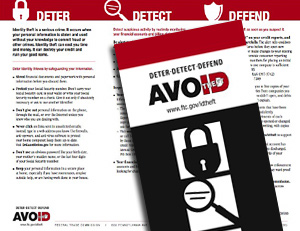../../../..//2008/05/20/heres-4-good-reasons-to/
Here’s 4 good reasons to buy a high-def TV now instead of later. [SmartMoney]
Thanks for visiting Consumerist.com. As of October 2017, Consumerist is no longer producing new content, but feel free to browse through our archives. Here you can find 12 years worth of articles on everything from how to avoid dodgy scams to writing an effective complaint letter. Check out some of our greatest hits below, explore the categories listed on the left-hand side of the page, or head to CR.org for ratings, reviews, and consumer news.
../../../..//2008/05/20/heres-4-good-reasons-to/
Here’s 4 good reasons to buy a high-def TV now instead of later. [SmartMoney]

../../../..//2008/05/20/wal-mart-has-launched-a-personal/
Wal-Mart has launched a personal finance website at walmart.com/savemore. It offers tips and saving advice, while also pushing Wal-Mart’s own money services and weekly specials. [Wal-Mart]

Trent at The Simple Dollar blog has a post about how to say no, especially to charitable requests. One of his readers describes the problem:

If you’re a podcast sort of person, Get Rich Slowly has a list of 12 personal finance podcasts that they say are the best of the bunch—informative, entertaining, well-produced, and unique. “Money Girl’s Quick and Dirty Tips for a Richer Life” is their top choice:

CNN asks some money experts for tips on how to teach kids about personal finance. Laura Levine, the executive director of Jump$tart Coalition for Personal Financial Literacy, says she uses a special piggy bank for her 3-year-old son—it has four chambers, “one for saving, one for spending, one for donating and one for investing,” and helps teach him that money is not just for “one thing.”

Condé Nast marketing department, are you on crack? Have you put some trinket from “The Hills” in charge of your mail server? Justin has emailed you repeatedly to tell you to stop spamming him. His marketing preferences on your site show a vast field of “No” for every single title on your list. And yet he’s received 16 emails since his last request—almost three a month. You should know better—or, as Justin puts it, “This isn’t some Nigerian guy trying to make my penis larger or send me money, this is a company here, in the United States, that I know should be held accountable.”

Ordinarily I find “money tricks of millionaires” lists to be sort of annoying and unhelpful, but this one, found on the Dumb Little Man productivity blog, and based on a book called ‘The Millionaire Mind’ by Dr. Thomas J. Stanley, is an exception. It offers one bit of practical advice that I think everyone should at least consider.

Reader Jennifer sent the following letter to a few lawyers looking for some help with SallieMae. They told her that there was nothing she could do and to negotiate with the lender and to start making payments:

Tracy Ham and Eggs shared a great tip with other readers on our Pizza Hut spam post earlier today: My last decent sized company had a “food@company” email. They opted into everyone deals and menu emails and when we wanted to order something we hit that email and searched for what we wanted.

Direct mailers don’t believe in the concept of opting in, so if you want to cut down on the amount of straight-to-the-trash mail you receive, you’ll need to contact them directly and request that your name is removed. ForestEthics—the group behind the Do Not Mail Registry petition we blogged about earlier, has gathered several ways to contact the offending parties.

A former FDIC employee writes that the FDIC’s call center (877-275-3342) is “a tremendously helpful place to get basic referral information if you’re having trouble with your bank, lender, or finance company.” They can’t help you with complaints, but they can route you to the correct agency, provide credit union contact info, and give you the names and numbers of state agencies where your bank is located.

An employee of Best Buy apparently thinks too many days have gone without us posting something about the store, so he sent in his list of 10 things he thinks every customer should know when shopping there. Items 10 through 7 are all about warranties and service plans, so the usual caveats apply (make sure you know what’s really covered, and that it’s worth the extra cost to you). #4, however, is good to know: “Its pretty much pointless to call Corporate/Customer Service Hotline—they can not override a store’s decision. Best bet is to call or email a District Manager or higher.”

When a new baby arrives, there’s not much time to do anything extra, but if you have a will you should review it and update it as necessary. The Associated Press is reporting that “Heath Ledger’s will leaves nothing to his former girlfriend and their 2-year-old daughter because it was never updated after they became part of his life.”

Texas levies an inventory tax of .02% on the retail value of all products in a company’s inventory each year, but lots of car dealerships try to sneak the fee over to the consumer. Even worse, they do it year-round.

Last week we wrote about the IRS’ free tax filing program and pointed you to a blog that reviewed all 19 services. Only two offer free state filing, but the blog, Flife, pointed out that you could always use your chosen service to prepare your state return—using it as a sort of worksheet—and then switch to one of the totally free services to do the actual filing. But be careful: a reader just wrote in to say free-tax-return.com completely deleted his state filing when he declined to pay the $13.50 fee.

Jay writes in with a question: how do you get back your deposit from a car dealership when a deal goes sour? The salesman jacked up the price after an initial negotiation, and now won’t refund the deposit: “He said we’d be surprised at what he can make up to keep the deposit.”

Today we received a handy brochure (PDF) in the mail from the postal service. “Deter, Detect, Defend,” it reads, and it offers a bunch of handy reminders of what to look out for when it comes to protecting your identity, and what to do if you suspect it’s been stolen. If yours was stolen (ha ha, we kid!), you can read read or download it from the FTC’s ID theft website.
![]()
Part of ![]()
Founded in 2005, Consumerist® is an independent source of consumer news and information published by Consumer Reports.
